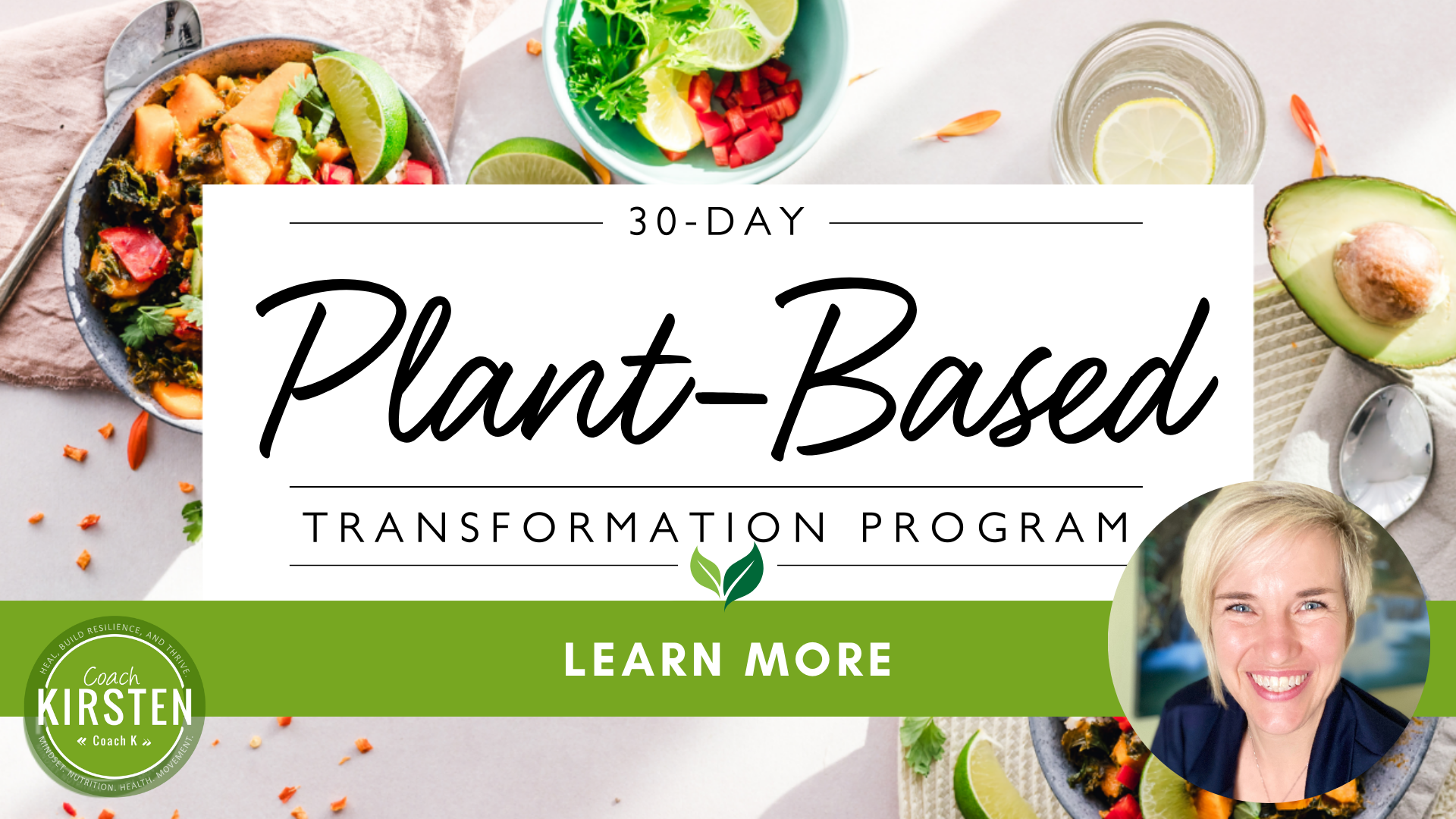Emotional Health – Part 3 – Healing Our Past & Addressing Our Lifestyle
Our emotional state, our eating habits, our past, and our lifestyle are all so intricately linked that they daily affect one another.
This is the third part of a mini-series on the connection between diet and our emotional state. This is such a complex topic that books can be, and have been written about this. But I’ve found that even the simplest of concepts are either unknown among most people, or if they are, then it often remains “background information” rather than taking a look and making adjustments. Both are okay and normal! Don’t worry. The good news is that there is hope.
- In Part 1, I shared about how food can affect our emotional state (here).
- In Part 2, we talked about how are emotions affect our food choices (here).
- In Part 3, I’d like to share a bit about the combining relationship of healing our past and adjusting our lifestyle in a way that can bring us freedom in these areas.
We now know that proper nutrition affects our emotions.
Emotional health affects how we approach food.
We have to use our tools to keep this process of emotional, mental, and physical health in unity.
Having a craving? Overeating? What if it’s not just your willpower?
What if there’s more of an intricate system involved?
It’s true, certain foods create cravings. And that creates a cycle.
But it’s also true that going to those foods for comfort started somewhere in our lives where we reached out to food to help us when we really needed something else.
What if there was even more to it?
Addressing Our Past: Wounds, Traumas, and Beliefs
This is something that is VERY key. Ultimately, it’s another few writings, and a few books worth (which are coming!)
Over the years, I have seen the way that we are able to be healed and made whole. I’ve seen many breakthroughs using prayer with God and I’ve seen it as well with tools such as “Tapping”, counseling, mindset shifts, and many other trauma resiliency tools.
Having proper help is always vital to helping strong emotions. If there is a real chemical imbalance, please make sure and discuss with your doctor.
However as we started this discussion in Parts 1 and 2, we noted that there are certain things we can do to aid our emotions and aid our emotional eating.
One of these is to truly address our past wounds, traumas, and even our belief systems.
These are intricately woven into how we view life and how we view the food in front of us.
Sometimes that sounds a little odd to think of food being related to my past, but if you think about it for a moment, food is a source of both comfort and relational connection. It can comfort us when we’re in pain and it can be a place of great joy in the right setting.
So, I encourage you to take some time either using Morning Pages (stream of thought writing) or talking with someone.
Take an Honest Look at Your Current Lifestyle Habits and Stress Levels
A lot of times I will hear people say that they don’t know why they’re experiencing exhaustion, emotional challenges, or reaching for food so often. Within just a few minutes reviewing what their current life looks like, tells all. Stress is powerful and comes in many forms. I’ve spent years studying stress inside and out. We can have biological stress from the foods we eat. We can have emotional stress coming from a number of places, including our mindset. Of course, we’re aware of work, life, and relational stresses, but are we aware of just how deeply they affect the way we’re able to handle what life throws at us?
Again, it’s important to look at each of these
- Within your life, are you rushing from place to place?
- Do you experience anxiety, fears, or depression?
- How is your thought life?
- Looking at relationships, how are they doing?
- Are you getting enough nutrition to help your stress, resiliency, and emotional state?
- Are you getting outside to get fresh air and movement?
- What about creativity? Do you have a healthy outlet for creativity?
Each of these play an important role in our emotional health.
As I walked through a lot of healing myself, I had to regularly ask myself questions like these. I do the same with those I coach or work with. Many times, we can go through life without paying attention. In order to truly get free and walk in that wholeness we’re seeking after, we have to check-in and just pay gentle attention to how we’re living our lives.
Renew Your Mind Daily—Journal, Declarations, & Affirmations!
Ever experience negative thoughts? I’m sure you do 🙂 I’ve never met anyone who hasn’t had a negative thought come through. On a regular basis.
In fact, our brains are actually hard-wired for fear and negativity!
So, what are a few ways to do this? Here are my 3 favorite methods:
- Declare with your mouth.
- Journal (as noted above, “morning pages” can be a powerful way to do this)
- Input: Listen or Read positive sources.
Listen to the video above where I go into these a bit more.
Nutritional awareness
This will help us identify if we are eating anything that might amplify negative emotions such as processed foods, sugars, refined foods, saturated fats, and excess salts. Each of these amplify negative emotions through various ways including reducing our dopamine, serotonin and increasing cortisol levels.
Wrestling with depression, fear or anxiety? Ask yourself how much of these foods are in your lifestyle. Take an honest look.
On the flip side, we can also be lacking in proper nutrients that will help amplify and increase our “happy” emotions: fruits and vegetables are loaded with fiber, vitamins, minerals, water, and phytonutrients that aid our 3 brains responsible for our emotional & mental state (head, heart, and gut) in functioning to their highest capacity.
Add in as much of these as you want:
- Water (aim for 64-96 ounces in a day. Learn more about water here)
- Leafy greens (spinach, kale, chard, cilantro, parsley, etc)
- Cruciferous
- Mushrooms
- Onions
- Other veggies
- Berries
- Other fruits
Allow these to be “crowded out” by the foods above:
- Processed foods (in general, foods in a package, foods you don’t recognize the ingredient names, or foods made my factories)
- Refined sugars (fruits are wonderful sources of micronutrients that your body needs, so eat these in plenty. Just avoid the sugars placed in foods that are refined and watch how your health begins to adjust)
What’s your state of movement?
You hear me say this all the time, but daily, regular movement is an absolute key to physical health, but is also shown in many studies to increase our emotional health and state of being.
It doesn’t matter if you’re running a marathon, or “simply” going for a walk each day. Your body is designed to move. If your body is tired, fatigued, or having a hard time, do what you can. Stand up and shake your legs out a little. Use a trampoline and bounce for a minute. Or do some light stretching.
Did you know that when your body moves, your mind and cells renew?
THIS is key! When you move, you receive loads of benefits:
- Fresh air
- Blood flow
- Renewing the mind (and brain cells)
- Renewing the chemicals in the body
- Renewing your cells
Here are some other Helpful Tips for walking away from emotional eating in Part 2. (Sleep, Air, Journal)
Earthing / Grounding
More on this in a future article, but for now, know that putting your feet in some grass for 20 minutes a day has been shown to help reduce negative emotions, inflammation, and reset your body in many ways. Give it a try! (A few studies linked below)
Breathwork & Stillness
This one is SO key. We live in such a fast paced society that we rarely sit still.
See link and article here for methods of breathing and stillness that really help reset your mind, body, and emotions.
RESOURCES & RESEARCH:
https://www.healthline.com/health/grounding#benefits
https://www.ncbi.nlm.nih.gov/pmc/articles/PMC4590684/
https://www.sciencedirect.com/science/article/pii/S1550830719305476
https://www.frontiersin.org/articles/10.3389/fpsyg.2014.00976/full
https://www.nature.com/articles/s41591-020-0963-8
https://foodrevolution.org/blog/anxiety-self-help-diet-lifestyle/
https://www.ncbi.nlm.nih.gov/pmc/articles/PMC3762204/
https://www.health.harvard.edu/blog/nutritional-strategies-to-ease-anxiety-201604139441
https://foodrevolution.org/blog/mood-boosting-foods/
https://www.frontiersin.org/articles/10.3389/fnhum.2019.00177/full
https://www.medicinenet.com/script/main/art.asp?articlekey=40362

Hi there! My name is Kirsten Larsen, also known as Coack K. I’m a holistic health coach, Clinical EFT practitioner, and running coach. My journey has been a long one in the way of healing my body, emotional healing, trauma healing, transformational mindset techniques, emotional freedom technique, learning nutrition, injury prevention, running form and technique, and more. All in all, what I’ve found is that we are designed to thrive in our body, soul, and spirit. If we are not, then there is simply an element we’re missing. It’s been my passion and joy to help people remove the blocks that keep them from thriving in their body and mind, so that they can thrive in life. If you’re interested in coaching, sign up for a free consultation call here.

